16. Of the Bringing Forth of the Mountains
Formerly there was a rumor that the mountains would bring forth. The men run thither, stand round about, expecting something of a monster, not without fear. At length the mountains bring forth. A mouse comes out; then all laughed.
Moral. Braggers, when they profess and boast great things, scarce do little things. Wherefore those Thrasos are by right the matter of jest and scoffs. This fable also forbids vain fears. For commonly the fear of danger is more grievous than the danger itself; nay: that which we fear is often ridiculous.
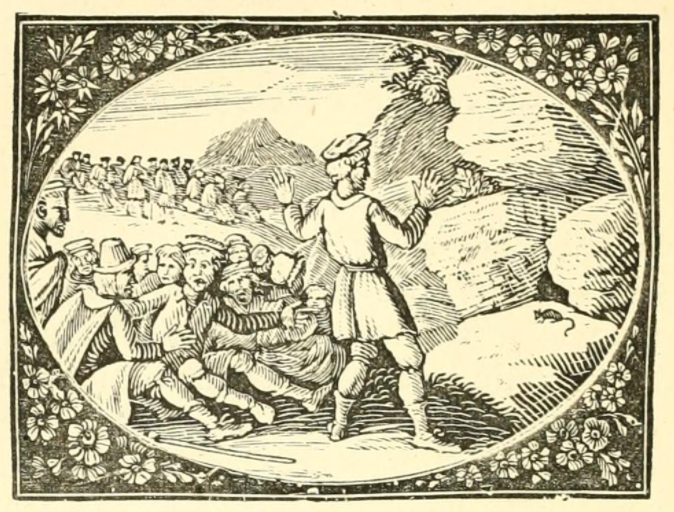
17. Of the Hares and the Frogs
The wood roaring with an unusual whirlwind, the trembling hares begin hastily to fly away. When a fen stopped them flying, they stood anxious, encompassed with dangers on both sides. And what was an incitement of greater fear, they perceive the frogs to be plunged in the fen. Then one of the hares more prudent and more eloquent than the rest said, "What vainly do we fear? There is need of courage indeed: There is to us agility of body, but courage is wanting. This danger of the whirlwind is not to be fled from, but contemned.
Moral. There is need of courage in every thing. Virtue lies dead without confidence. For daringness is the leader and queen of virtue.
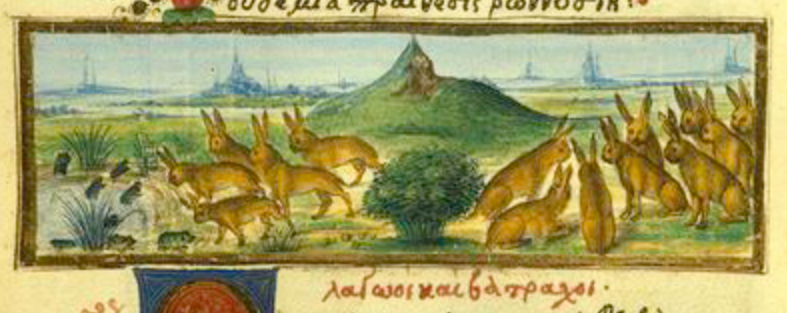
18. Of the Kid and the Wolf
The goat, when she was about to go to feed, shuts up the kid at home, warning her to open to nobody till she return. The wolf, who had heard that afar off, after the departure of the mother, knocks at the doors, acts the goat in voice, ordering them to be opened. The kid, perceiving the cheat, says, "I do not open; for altho' the voice acts the goat, yet indeed I see a wolf through the chinks."
Moral. Children, obey your parents, for it is profitable, and it becometh a young man to hearken to an old man.
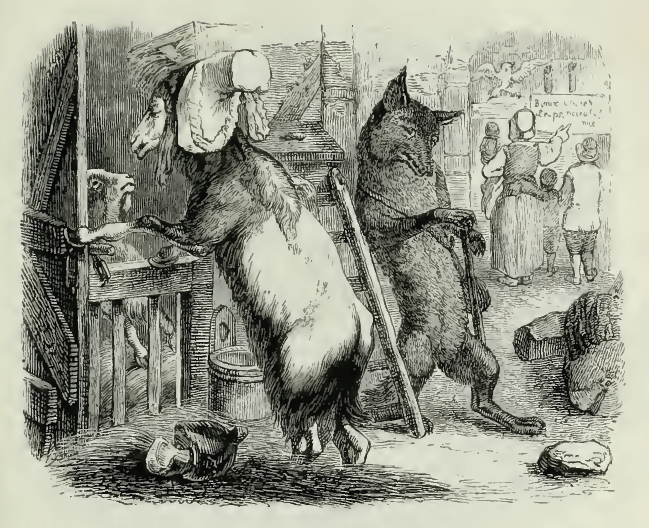
19. Of the Countryman and the Snake
A certain countryman had nourished a snake; on a time being angry, he strikes the beast with an axe. He escapes, not without a wound. Afterwards the countryman coming into poverty thought that misfortune happened to him for the injury of the snake. Therefore he entreats that he would return. He says that he forgave but was unwilling to return; nor could he be secure with the countryman when there is so great an axe at home; that the pain of the wound was worn away, yet the memory remained.
Moral. It is scarce safe to have faith in him who once has broke faith. To forgive an injury, that indeed is the part of mercy, but to take heed of one's self both becometh and is part of prudence.
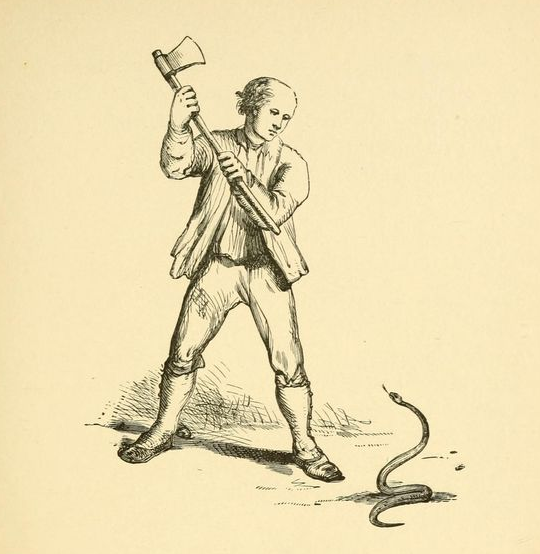
20. Of the Fox and the Stork
The fox called the stork to supper. She pours out the victuals upon the table, which, when it was liquid, the stork endeavouring with her bill in vain, the fox licks up. The deluded bird goes away, and is ashamed and vexed at the injury. After some days she returns, invites the fox. A glass vessel was placed full of victuals; which vessel, when it was of a narrow neck, it was lawful for the fox to see, and hunger, not to taste. The stork easily drew it out with her beak.
Moral. Laughter deserves laughter; a jest, a jest; a trick, a trick; and deceit, decit.
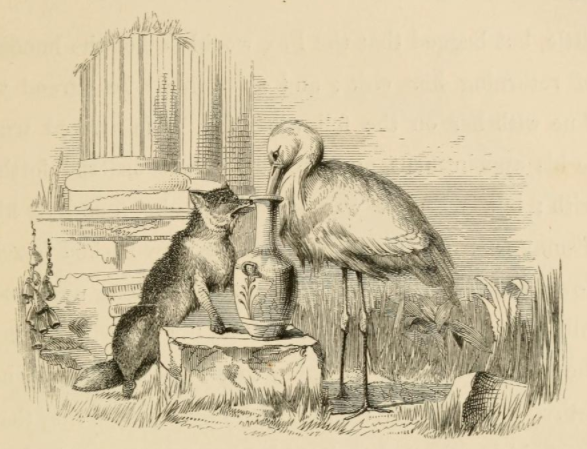
No comments:
Post a Comment
Comments are limited to Google accounts. You can also email me at laurakgibbs@gmail.com or find me at Twitter, @OnlineCrsLady.